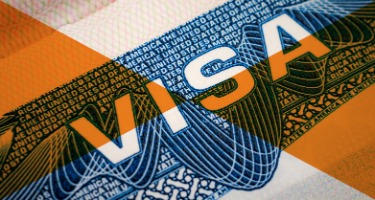In the original Brothers Grimm story, "Snow White," the queen asks, “Mirror, mirror, on the wall: who in this land is fairest of all?”
The queen, enamored of her own beauty, is shocked and upset when the mirror responds that someone else, Snow White, is a thousand times fairer than her.
There is a parallel between this question and the U.S. Citizenship and Immigration Services (USCIS) adjudication of employment-based first (EB1) extraordinary ability immigrant petitions, which, if approved, enable foreign nationals to achieve permanent resident status in the United States.
Unlike in "Snow White" where the mirror plays the judge, USCIS officers in the EB1 unit decide whether the qualifications of beneficiaries meet the elite standard. Specifically, there are two major tests to establish that one’s qualifications merit an approval in the immigrant category reserved for those with “extraordinary ability.”
First, USCIS decides whether the foreign national has sustained national or international acclaim in the claimed field of expertise by requiring submission of a certain configuration of evidence. The foreign national can submit evidence of a one-time achievement that is a major, internationally recognized award, such as a Nobel Prize. Of course, most beneficiaries have not won a Nobel Prize. So the bulk of EB1 beneficiaries must submit evidence in at least three evidentiary categories out of a list of eight. The most common categories utilized by researchers include proof of authorship of scholarly articles in peer-reviewed, internationally circulated journals; serving as a reviewer or editor who judges the work of others; and making original scientific or scholarly contributions of major significance in one’s field.
Second, even if one establishes that one has submitted evidence in at least three categories, the petitioner bears the burden of proving attainment of a level of expertise placing one amongst a small percentage that has risen to the very top of the field of endeavor.
Scientists, professors, and those engaged in other research-oriented occupations typically have at least a Ph.D. Many also have a handful or more of publications, some as first author. And some also have reviewed papers for journals at one time or another.
It is not uncommon for research-oriented professionals interested in permanent residence to regard themselves as EB1 worthy. In their view, they hold a Ph.D., have many publications, mostly from during their doctoral years, which contain original findings, and also have conducted reviews for some journals whose stated mission is to publish significant findings. Technically, they may be correct that they have a colorable claim that their evidence arguably fits into three evidentiary categories. In the past, USCIS often did approve a number of cases with this profile.
This includes a trend of USCIS more forcefully challenging self-sponsored EB1 cases both in terms of whether evidence is sufficient to fit within a given evidentiary category (the three out of eight test) and that the evidence establishes extraordinary ability.
Recent request for evidence (RFE) challenges for research-oriented professionals focus primarily on two areas. First, many self-sponsored EB1 petitioners rely on proving original contributions of major significance for their third category of evidence. USCIS is more frequently challenging whether contributions are of major significance by demanding proof that the beneficiary’s work has been commercialized, been the subject of a patent application, or has been the subject of some other objective manifestation of “major” significance. USCIS is increasingly disinclined to accept solely testimonials of other experts in the field to satisfy this category. Second, USCIS is much more inclined to aggressively contest whether the overall evidence establishes sustained acclaim and that the researcher is in the top few percentile. Sometimes the RFE comments that, while the foreign national is talented, very few can meet that USCIS’ lofty criteria and that many Ph.D.’s will necessary meet some of the categorical criteria by nature of having been in Ph.D. programs—but the standard is such that relatively few Ph.D.’s should actually meet the EB1 criteria.
Those researchers who amass superior objective evidence in these areas prior to case filing are more likely to have the mirror of the USCIS adjudicator decide to issue an EB1 approval notice determining that they are amongst the fairest petitioners of them all.
----------------------------
Douglas Halpert, Esq. is a partner at Hammond Law Group LLC. A frequent author and lecturer, Mr. Halpert has been practicing immigration law for over 29 years and has handled extraordinary ability immigrant petition cases since the category was created by the Immigration Act of 1990.





















